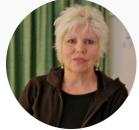'This discussion paper argues for the centrality of Aboriginal Spirituality in the practice of social and emotional wellbeing and for applications in all areas of Aboriginal development. Although often mentioned in the literature on Aboriginal health and social and emotional wellbeing, Spirituality has been in danger of becoming one of the undefined terms—like wellbeing, community, identity —that are used in various contexts and with various meanings attached, and in ways that obscure the reality of Indigenous Australian knowledges, philosophies and practices. In common with terms such as the Dreaming , it has lost significant meaning when translated into English. This discussion paper importantly defines Aboriginal Spirituality by privileging the voices of Aboriginal people themselves and those of well-respected observers of Aboriginal culture. It demonstrates how those who are well exemplify Spirituality in everyday life and cultural expression. Having commonalities with internationalIndigenous groups, it is also deeply appreciated by non-Aboriginal people who understand and value the different ontologies (understandings of what it means to be ), epistemologies (as ways of knowing ) and axiologies (the bases of values and ethics) that Aboriginal philosophy embodies, as potential value to all peoples.' (Publication introduction)
 1370179011334611183.png
1370179011334611183.png